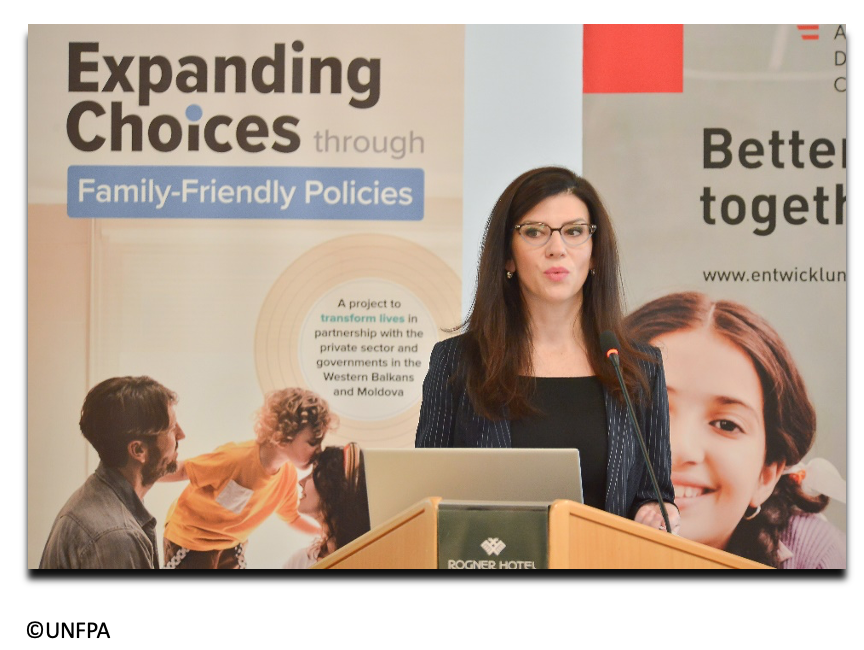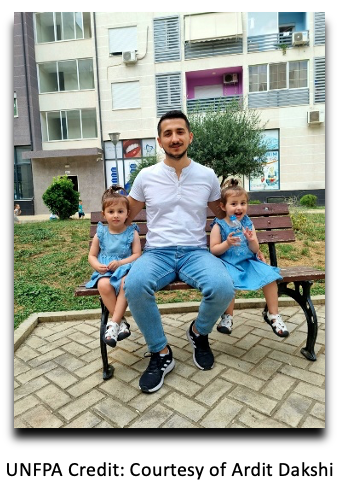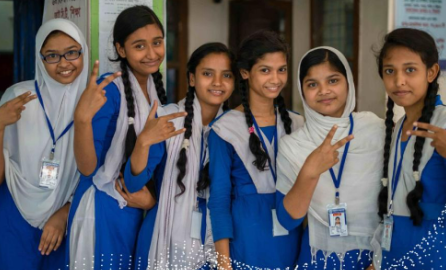Expanding choices: gender responsive family policies for the private sector in the Western Balkans and Moldova

-
Gender marker: G2-Promotes gender equality as a primary objective
-
Period of implementation: 2019-2023
-
Amount: EUR 1,500,000
-
Geographical area: Western Balkans and Türkiye and Eastern Partnership
-
(Co-)funded by: Austria
-
Implementing partners: United Nations Population Fund - UNFPA
-
GAP III’s Areas:
-
Sexual and reproductive health and rights
-
Economic and social empowerment
-
Equal participation and leadership
-
A career or a family? That’s the big question many women in the Western Balkans and Moldova still face in their daily lives.
As part of its commitment to promoting the recognition, reduction and sharing of unpaid care and domestic work, Austrian Development Cooperation’s gender policy focuses, among other areas, on changing discriminatory social norms and practices that prevent women and men from equal participation in all spheres of their professional and private lives.
One example of this commitment is the regional programme “Expanding Choices”, which supports gender-responsive family policies and initiatives offered by the private sector and promoted by governments to eliminate obstacles that prevent women from realising their career aspirations and having the number of children they want.
Based on analysis and national surveys developed under the programme and working hand-in-hand with governments and the private sector, the Austrian Development Cooperation with the support of UNFPA, as an implementing partner, is driving policies and measures at the national level and in the workplace to increase opportunities for women’s employment and redistribute the burden of unpaid care work.
In particular, through initiatives such as the launching of private sector certifications or the creation of family-friendly workplaces, the programme contributes to gender equality and benefits both companies and employees.
In countries like the Republic of Moldova, the programme has supported the Ministry of Health, Labour and Social Protection and Chamber of Commerce and Industry in fostering a favourable environment for a sustainable work-life balance among women and men. Moreover, it contributes to building evidence, knowledge, and tools, creating a tested and replicable policy model in the region. For instance, for the first time, sex-disaggregated data on the formal employment sector is now available in studies like “Implementing Family-Friendly Policies and Gender Equality in the Public and Private Sectors”
Moreover, in countries like Albania, where only 3% of men take paternal leave, the programme is having a transformative impact by addressing harmful gender stereotypes and encouraging men to take an active role in fatherhood and care responsibilities through initiatives such as the UNFPA’s innovative MenEngage social media platform.
“In the beginning, my co-workers laughed at me, however when my colleagues saw all the benefits, they started using paternity leave too.” Ardit Dakshi, a systems engineer in Tirana (Albania) benefited from paternity leave when his wife gave birth to twins.

